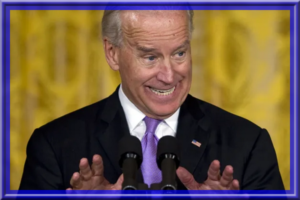
By a parliamentary landslide of 521 votes to 73, the U.K. House of Commons just voted to ratify the new Trade and Cooperation Agreement (TCA) between the European Union and the United Kingdom that was agreed to on Christmas Eve and that will come into effect at midnight on December 31. All that’s left to do is for the House of Lords to reluctantly endorse a verdict that is popular both electorally and constitutionally, and for the Royal Assent to be given. That’s expected either very late tonight or tomorrow morning. Then, at that same midnight, the transitional one-year period between the formal departure of Britain from the EU (i.e., Brexit) and its practical implementation will be complete. Four and a half years after the June 2016 Brexit referendum, Britain will finally regain its previous status as a self-governing independent democracy.
It’s the end of one of the most hard-fought struggles that has ever roiled the British political system, and a great political victory for the prime minister, Boris Johnson, who 13 months ago was fighting — and not visibly winning — a seemingly interminable battle against the entrenched forces of Remainerdom in Parliament and in the wider political establishment. It’s also a victory for the small but principled band of Brexiteers in the Tory European Reform Group (ERG) who were a minority of a Eurosceptic Tory minority when the campaign for a referendum on EU membership began seriously in the 2010 Parliament and who have achieved 90 percent of their aims. And though their names have not been on top people’s lips today, it’s a massive personal triumph for Nigel Farage and Dominic Cummings, too. It will be a scandal and a shame if Mr. Farage is not granted as a tribute the peerage he refused as a bribe, and if Mr. Cummings (who may not want early retirement in the Lords) does not get equivalent recognition.
And as far as any political change can be called irreversible in a democratic society, it looks irreversible or, to be more cautious, reversible only in the very long run. That’s the case because the balance of political opinion in and out of Parliament is in favor of Boris’s TCA and even more in favor of not re-opening the Brexit debate. A YouGov poll showed public opinion supported the deal by 57 percent as against 9 percent rejecting it with 34 percent retreating into Don’t Know territory. The Tory Party, which for most of the decade had been split between one-third that supported the Tory leadership in supporting EU membership and two-thirds wanting (if usually discreetly) to opt out, was today united. All but two Tory MPs voted for the TCA, and their abstentions may not have been for political reasons. (Both ERG members, they had supported Boris’s deal.) For the next generation or two, the Tories will be the Brexit Party without qualifications, if only because they won’t want to return to the deep divisions of the last four years. For almost that long, therefore, they’re likely to occupy the commanding heights of politics and opinion.
[Interesting Read]
See Also:
(1) Twenty years on, it’s looking like Milton Friedman may have been right about the euro
(2) EU and China Seal Investment Agreement to Open Chinese Market
(4) Smoke & Mirrors Mask the Brexit Deal
(5) Death of defeatism: Brexit deal is culmination of Margaret Thatcher’s pro-UK dream
![]()


